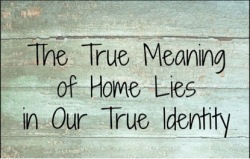There are many blogs and YouTube videos showing what the rest of the world gets wrong

about our beautiful country, some of it funny, some of it quite horrifying. As a young African explorer and traveler, I have been asked all the clichéd questions… “Do I have pet lion?” or even worse – “Have you walked to Nigeria?” Because you know, it’s all in Africa. Here, I want to give you a
taste of the cultural clashes and surprising culture shocks you might experience should you start using your student passport seriously.
Firstly, I think we South African are more prepared to travel the world, because we are regularly exposed to multiple cultures and languages back home. When I did my MSc degree in Korea (the “good” one!), I discovered quite the language barrier. English is not an official language over there, and very few schools use English as a medium of instruction. But, when I mentioned that South Africa was multilingual society and the average South African speaks more than 3 languages, people were flabbergasted. It made me realise how much of a mono-culture Korea was, and I missed our crazy diversity. I became involved with the South African Students(?) in Korea group – not to cling to my past, but to find people that shared my ‘rainbow nation’ mind-set. It was here that we had a space to discuss our academic concerns and speculate about opportunities that existed back home. It was during our meetings that we laughed and swapped stories; we used humour to mask the pain and ridicule that we felt being outsiders in this mono-cultural society.

When I later moved to Canada, though, I was not ready for the whole new set of expectation and questions that I’d face in North America. Here, academics were generally concerned with the life quality of South African university students (the #feesmustfall movement has captured the world’s attention). I must admit it was refreshing to converse about the status quo in south Africa – even though I admit I’m not an expert on the topic.
I find there are major differences between the east and west- notably, in the east it is often asked, “When are you going back to your country?” and here I get asked, “ So, have you decided where you will settle in Canada?” It is always shocking when I tell my colleagues that I have every intention of going back home (why would I stay in a place that gets over a metre of snow on random Tuesday- THAT is another story).

There is a lovely mix of people within the South African diaspora community: some who have no intention of returning home and those of us who recognise the potential impact/significance of our contributions to the South Africa academic landscape. Those of us wanting to return often share similar concerns- Have we been gone too long? What opportunities exist for someone with a foreign qualification? What is the academic landscape like now and how is it evolving? Is there a niche for my work? Would we be able to integrate back into mainstream south Africa? What challenges await us? When you have been gone for as long as I have, these questions are enough to give you mild anxiety and keep you up at night.